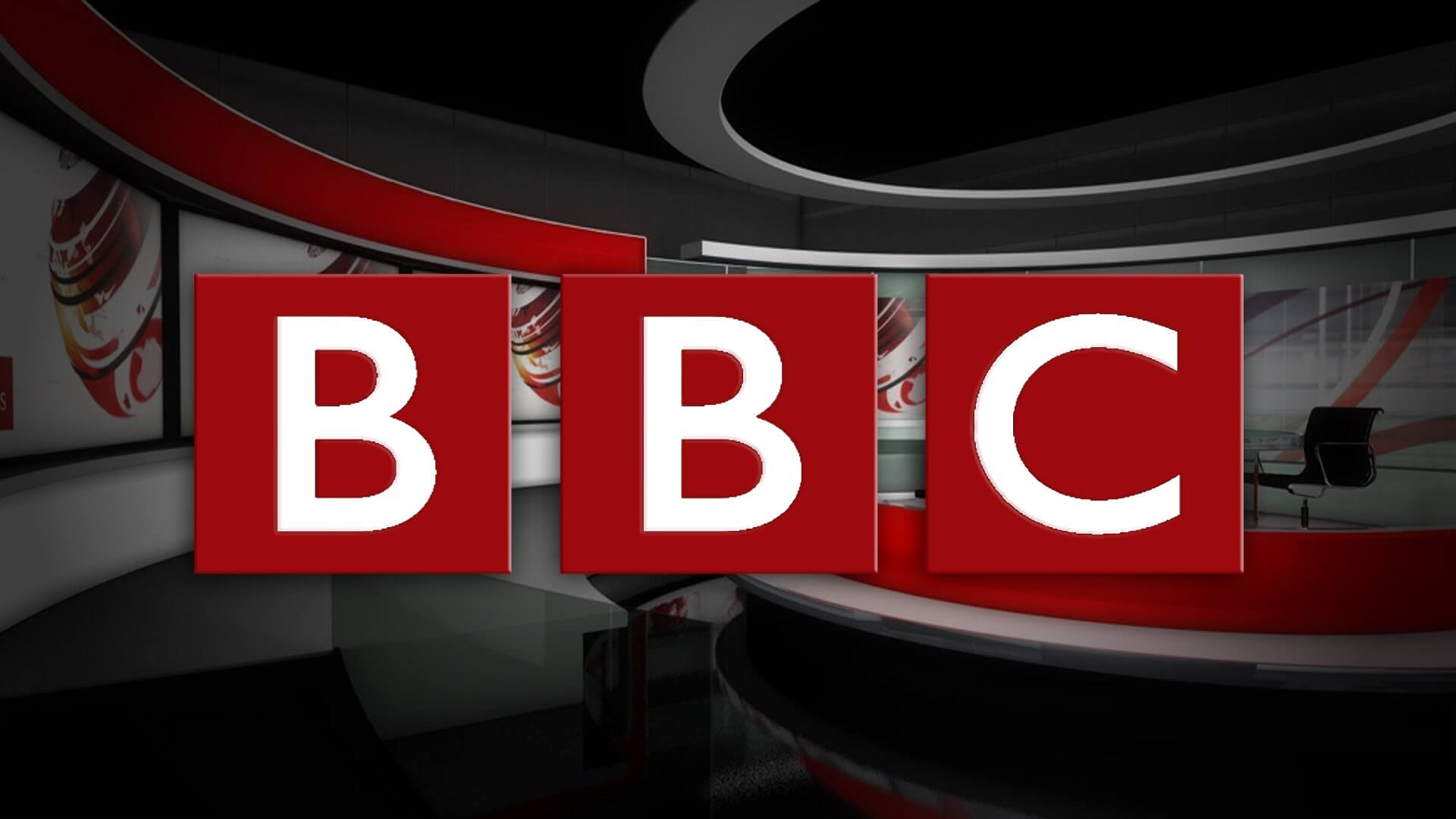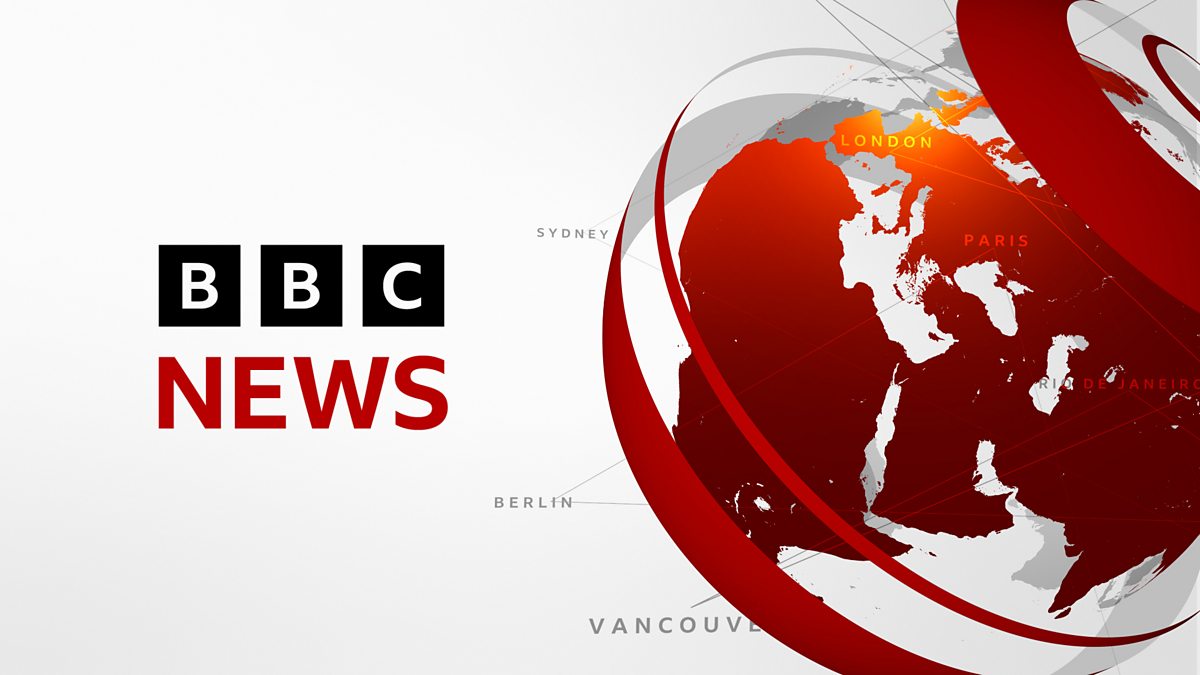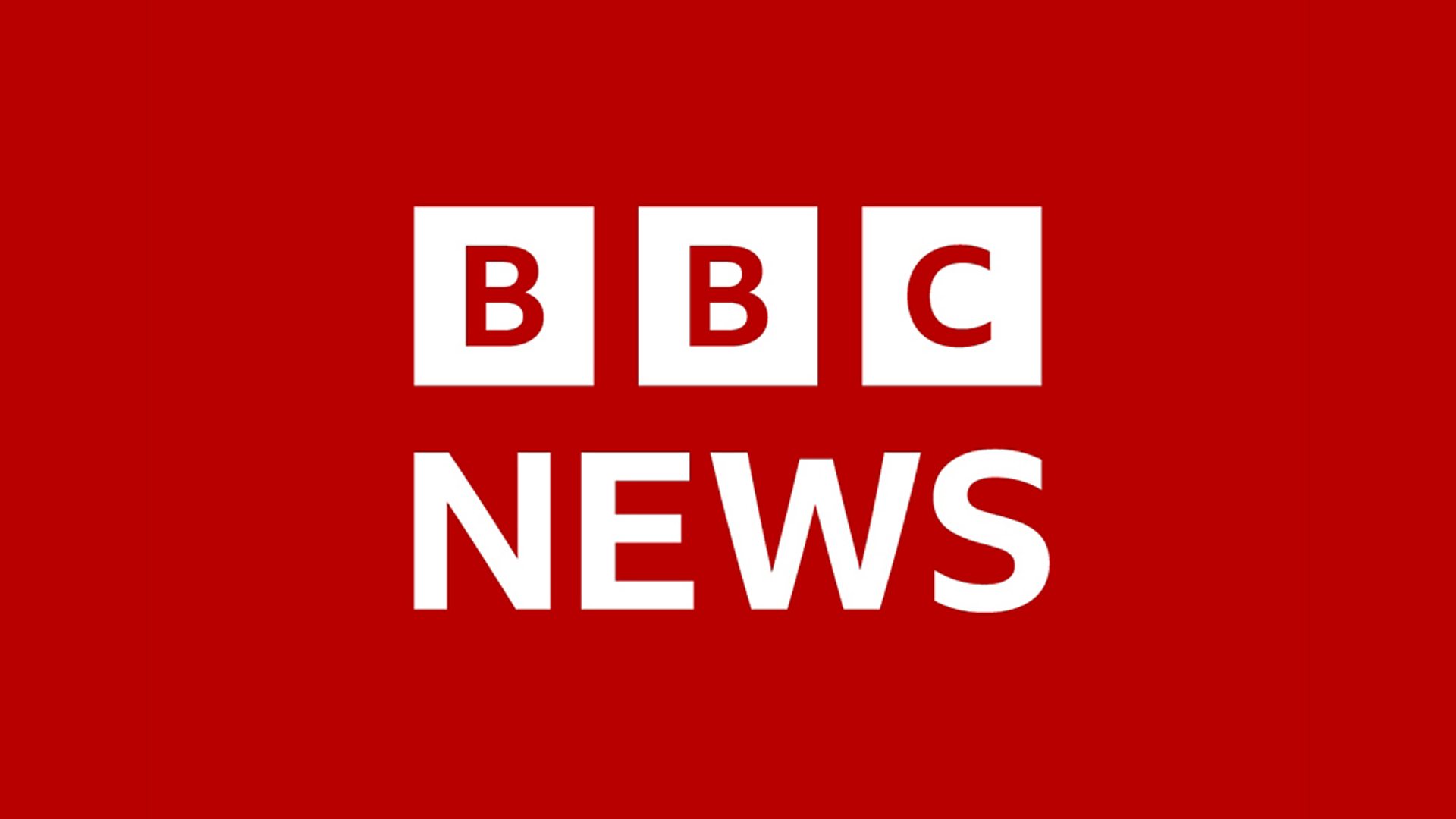It's almost a given that when certain phrases pop up in search engines, they often spark a fair bit of head-scratching, sometimes even a sense of mild surprise. One such phrase, "BBC Twitter porn," might, you know, really make you pause and wonder what exactly people are looking for or what kind of information they expect to find. It's a combination of words that, at first glance, seems to mix a very established news organization with something quite different, something perhaps more explicit, and then throws in the world of social media for good measure. This kind of search query, honestly, points to a broader conversation about how we look for things online and what we think we might uncover when we type in unusual word pairings.
When folks come across something like "BBC Twitter porn" as a search suggestion or a trending topic, it can certainly prompt a moment of curiosity, or perhaps a slight feeling of confusion, about what could possibly connect these distinct elements. The British Broadcasting Corporation, after all, has a long-standing reputation for delivering serious news and thoughtful documentaries, a public service broadcaster that, in a way, aims to keep people informed and educated. To then see its name linked with content that's typically considered adult entertainment, especially on a platform like Twitter where all sorts of things get shared, just a little, it definitely creates a kind of mental disconnect for many.
So, this article will try to shed some light on what might lie behind such search terms. We'll explore the public's perception of major media outlets, consider the various types of content that exist on the internet, and look at how social media platforms play a part in how information, or sometimes misinformation, spreads. It's about trying to make sense of these intriguing searches and, you know, figuring out the bigger picture of how people interact with media and online content, particularly when it touches on topics that might seem a bit unexpected or even a little out of place.
- Ewan Vance
- Cooper Koch Shower Scene Menendez Brothers
- Nicholas Riccio Wives And Children
- Monica Bellucci Tim Burton
- Mackenzie Anderson
Table of Contents
- What Does "BBC Twitter Porn" Really Suggest?
- The Public Service Broadcaster and "bbc twitter porn"
- Is there a link between BBC content and "bbc twitter porn" online?
- How does Channel 4's programming relate to "bbc twitter porn" perceptions?
- Understanding Online Search Habits and "bbc twitter porn" Queries
- The Role of Social Media in "bbc twitter porn" Discussions
- Why do people look up "bbc twitter porn" on social platforms?
- Separating Fact from Online Chatter About "bbc twitter porn"
What Does "BBC Twitter Porn" Really Suggest?
When someone types "BBC Twitter porn" into a search bar, it's pretty clear they're looking for something that combines a very well-known news organization with, well, adult material found on a popular social media site. This search phrase, in a way, might seem a bit puzzling to many, given the British Broadcasting Corporation's long-held image as a serious and rather formal source of news and information. They have, as a matter of fact, always been known for their commitment to public service broadcasting, providing updates on world events, and producing documentaries that aim to inform and educate. So, seeing their name tied to something like "porn" on Twitter suggests a significant departure from their usual public face, or perhaps a misunderstanding of what their content typically involves.
It could be that people are just curious, wondering if there's some kind of hidden content or if a major news outlet has, perhaps, accidentally stumbled into a different kind of programming. Or, it might be that they're trying to find something explicit that's been mislabeled or incorrectly associated with the BBC on social media. The search itself, you know, really highlights how diverse and sometimes confusing the online information landscape can be, where names and brands can get linked to all sorts of things, whether intentionally or not. This particular search term, honestly, makes us think about the boundaries of what a public broadcaster does and what people expect to find when they look for content online, especially when it comes to "bbc twitter porn" and its unexpected pairing.
The Public Service Broadcaster and "bbc twitter porn"
The British Broadcasting Corporation, or BBC as it's more commonly known, has, for a very long time, carried the weight of being a serious and quite proper organization. Their mission, basically, has been to deliver news and programs that are meant to be informative, educational, and entertaining, all in a way that serves the public good. They're typically seen as a reliable place to get global updates and deep analyses, covering a wide range of topics from politics to the economy and various cultural happenings. This role, of course, means they generally steer clear of content that would be considered explicit or overly sensational, maintaining a dignified public image. So, the idea of "bbc twitter porn" appearing alongside their name can seem, well, pretty much contradictory to their established identity and what they usually put out for public consumption.
Their approach to content, in some respects, is quite different from many commercial broadcasters. They tend to focus on factual reporting and thoughtful discussions, aiming to provide a balanced view of events. This commitment to a more serious and, you know, rather sober presentation of information means that any association with "bbc twitter porn" would likely be seen as completely out of character for them. It raises questions about how such a search term comes about and what it implies about how people perceive or misperceive the content from a public service organization. The expectation, really, is for news and factual programs, not anything that might be linked to adult material, particularly when it comes to something as specific as "bbc twitter porn" and the kind of searches it represents.
Is there a link between BBC content and "bbc twitter porn" online?
When people look for a connection between official BBC content and the phrase "bbc twitter porn" online, it's important to consider the distinct nature of their programming. The BBC, generally speaking, produces a wide array of content, from breaking news stories and in-depth current affairs shows to nature documentaries and dramas. Their broadcasts, by and large, stick to guidelines that ensure they are suitable for a broad audience, reflecting their public service mandate. So, finding explicit material directly produced by the BBC and labeled as "porn" would be, you know, highly unusual and go against their core principles. Any actual link between their official output and something like "bbc twitter porn" is, frankly, extremely unlikely, given their long-standing commitment to a certain kind of public presentation.
However, the online world is a very different place from official broadcast channels. User-generated content, mislabeled videos, or even discussions around adult themes that might tangentially involve a news story could, conceivably, lead to such a search term. It's possible that people are searching for discussions or reports *about* adult content that might have been covered by the BBC in a news context, or perhaps they're looking for content that has been mistakenly or mischievously tagged with "BBC" on social media platforms. The sheer volume of information and the way things are shared online means that, you know, almost anything can get linked to anything else, regardless of accuracy. So, while official BBC material is not "bbc twitter porn," the online environment allows for all sorts of unusual connections to be made by users or algorithms.
How does Channel 4's programming relate to "bbc twitter porn" perceptions?
It's worth noting that other broadcasters in the UK, such as Channel 4, have, in a way, taken on a different kind of role compared to the BBC's more serious demeanor. While the BBC generally maintains a rather formal and dignified presence, Channel 4 has, apparently, focused more on creating entertainment content that sometimes pushes boundaries. This includes, as a matter of fact, producing quite a lot of television dramas and programs that are considered "large-scale" in terms of their content, sometimes featuring scenes that are, well, rather explicit, even showing nudity openly on television. Think about shows like "Naked Attraction," a dating program where participants appear without clothes. This kind of programming is quite distinct from what you'd typically expect from the BBC.
The existence of such shows on other reputable UK channels, you know, might subtly influence public perception of British broadcasting in general. If people are aware that some UK channels show explicit content, they might, perhaps, mistakenly extend that expectation or curiosity to other major broadcasters like the BBC, even though their mandates are quite different. This is not to say that Channel 4's content is "porn," but rather that its willingness to air more adult-oriented or, you know, rather daring material could, arguably, contribute to a broader curiosity about what kinds of "large-scale" content might exist across the spectrum of British television. This general awareness might then, just a little, feed into unusual search queries like "bbc twitter porn," even if there's no direct connection to the BBC's actual programming.
Understanding Online Search Habits and "bbc twitter porn" Queries
People's online search habits are, basically, a fascinating window into human curiosity, misunderstanding, and the way information spreads. When a phrase like "bbc twitter porn" shows up in search data, it tells us something about what individuals are looking for, even if the search itself seems, you know, a bit illogical at first glance. Sometimes, these queries come from genuine confusion, where someone might have heard a rumor or seen a misleading social media post and is simply trying to verify it. Other times, it could be a case of "morbid curiosity," where the unexpected pairing of words makes someone want to see if such a thing actually exists, or what kind of results it might yield. It’s a very common pattern for people to type in unusual combinations of words, just to see what comes up, especially when it involves well-known entities and controversial topics.
The way search engines work also plays a part; they try to anticipate what people are looking for and offer suggestions based on popular past searches. So, if enough people have, for whatever reason, typed in "bbc twitter porn," the search engine might start suggesting it to others, creating a kind of feedback loop. This doesn't mean the content exists as described, but rather that the search term itself has gained some traction. It really highlights how the collective online behavior of many individuals can shape what appears to be "trending" or "suggested," even if the underlying reality is quite different. Understanding these habits helps us see that a search query isn't always a reflection of actual content, but rather, you know, a glimpse into the collective mind of internet users and their various explorations.
The Role of Social Media in "bbc twitter porn" Discussions
Social media platforms, like Twitter, play a pretty significant role in how information, and sometimes misinformation, gets shared and talked about. These sites are, in a way, giant public forums where anyone can post thoughts, links, images, and videos, often without much in the way of fact-checking before it goes live. This open nature means that unusual or even sensational claims can spread very quickly, sometimes before anyone has a chance to verify them. So, when a phrase like "bbc twitter porn" comes up, it could be that someone, somewhere, posted something that made this connection, whether it was a joke, a mislabeled piece of content, or even a deliberate attempt to mislead. The speed at which things move on these platforms means that a single post can, you know, rapidly become a topic of discussion or a search query for many others.
Furthermore, the way content is tagged and shared on social media can sometimes lead to unexpected associations. Users might add hashtags or keywords to their posts that seem relevant to them, even if the connection is tenuous or incorrect. This means that a piece of content that has nothing to do with the BBC might, by accident or design, get tagged with "BBC," and if that content is explicit, then the phrase "bbc twitter porn" could, you know, start to appear in search trends or discussions. It's a complex web of user interaction, algorithms, and the sheer volume of daily posts that contribute to how these unusual search terms gain visibility. The platform's very structure, basically, allows for a rapid spread of ideas, true or not, and can certainly influence what people are looking up online, particularly when it comes to phrases like "bbc twitter porn" that spark immediate curiosity.
Why do people look up "bbc twitter porn" on social platforms?
There are several reasons why individuals might choose to look up a phrase like "bbc twitter porn" specifically on social media platforms. One common reason is that social media often serves as a real-time news feed, where people go to see what's currently being talked about or what's trending. If a particular term or topic gains traction, even if it's an unusual one, users might, you know, naturally search for it to understand the context or see what others are saying. It's a way of taking the pulse of online conversation, so to speak. This means that even if the phrase is based on a misunderstanding, its appearance on a trending list could prompt a search, just to see what the fuss is about, or what kind of content might be associated with it.
Another reason is the informal nature of social media. Unlike official news websites, platforms like Twitter are filled with user-generated content, which can be less filtered and more diverse. People might be looking for unverified rumors, humorous takes on unexpected pairings, or even, frankly, actual explicit content that someone has tried to link to a well-known name, even if incorrectly. The expectation on social media is often that you might find things that wouldn't appear in traditional media. So, for someone curious about "bbc twitter porn," these platforms are, basically, the first place they might turn, hoping to uncover something that mainstream channels wouldn't show. It's about seeking out the unfiltered, sometimes controversial, and often very surprising content that lives outside official channels, particularly when it comes to such a specific and, you know, rather intriguing search term.
Separating Fact from Online Chatter About "bbc twitter porn"
When faced with search terms like "bbc twitter porn," it becomes pretty important to try and tell the difference between actual facts and the general chatter that happens online. The British Broadcasting Corporation, as we've talked about, has a very clear public service mission and a long history of producing news and programs that are, you know, basically serious and meant for a wide audience. Their official content simply does not include explicit material that would be described as "porn." Any search results or social media posts that suggest otherwise are, frankly, almost certainly misrepresenting what the BBC actually creates or shares. It's a matter of looking at the source and considering the established reputation of the organization involved, especially when it comes to such a specific and, you know, rather startling claim.
The internet, for all its wonderful aspects, is also a place where misinformation can spread quite easily. A search term like "bbc twitter porn" might be the result of a mislabeled video, a prank, or even a deliberate attempt to create a sensational headline. It's really up to each individual to approach such information with a healthy dose of skepticism. Instead of assuming that a search result means the content actually exists as described, it's a good idea to look for official statements, reputable news reports, or the actual content from the BBC itself. This helps to make sure that what you're seeing is, you know, accurate and not just part of the vast, often unverified, conversation that takes place online. Understanding this distinction is key to making sense of the digital world, particularly when it comes to unusual search terms and the stories they might tell, or rather, not tell.
- Sam Hartman Family
- Gooch The Roach
- Nick Sirianni Son Illness
- Oliver Short
- Josh Dallas And Ginnifer Goodwin


